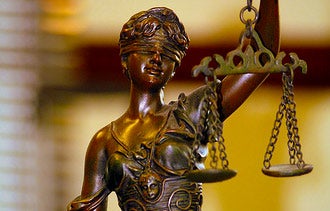The Supreme Court began its annual Term on Oct. 7, 2013, so we’re about halfway through. The Court has already heard arguments in several important cases and has several more scheduled for the next couple months. In two weeks the Court will finish scheduling cases for this Term, then start booking cases for October Term 2014.
The Court has not yet handed down decisions in any of the major cases heard this Term, so 2014 will contain all of those judgments. So far the big cases the Supreme Court has heard are:
- On Oct. 8 the Court heard McCutcheon v. FEC, a follow-up to the 2010 Citizens United case. Federal law limits the amount of money that a person can give to candidates and political action committees. In McCutcheon, the Supreme Court will decide whether aggregate limits—limiting the total contribution a citizen can give over two years to everyone combined—violate the First Amendment of the Constitution.
- On Oct. 15, the Supreme Court heard arguments in Schuette v. Coalition to Defend Affirmative Action, asking whether Michigan violated the Equal Protection Clause of the Fourteenth Amendment by amending the Michigan Constitution to prohibit racial preferences in programs such as college admissions.
- Also on Oct. 15, in DaimlerChrysler AG v. Bauman, the Court will decide if it violates the Fourteenth Amendment’s Due Process Clause for American state courts to claim jurisdiction over a foreign corporation when the company’s only connection with the U.S. is that a subsidiary of that corporation provides services in the American state where the court is located.
- On Nov. 5, in Bond v. U.S., the justices heard arguments on whether Congress can pass federal laws to fulfill a treaty when those laws would normally be unconstitutional if Congress attempted to do the same thing through ordinary laws. While this case involved a woman's poisoning her husband’s mistress, it has implications for many issues, including gun rights and parental rights.
Read the rest of the story HERE.
- On Nov. 6, the Supreme Court will consider in Town of Greece v. Galloway whether invocations at sessions of policymaking bodies—called “legislative prayer”—are unconstitutional if the court should decide those prayers endorse religion (such as the prayer givers mentioning Jesus Christ, or if a majority of the volunteer prayer givers are Christian). This case also asks the Court to consider whether its overall test on finding Establishment Clause violations for the past forty years needs to change. If the Court takes the extra step, this could become one of the most important religious liberty Supreme Court cases in American history. (Disclosure: I represent Members of Congress in this litigation supporting the prayer givers.)
If you like what you see, please "Like" us on Facebook either here or here. Please follow us on Twitter here.




No comments:
Post a Comment